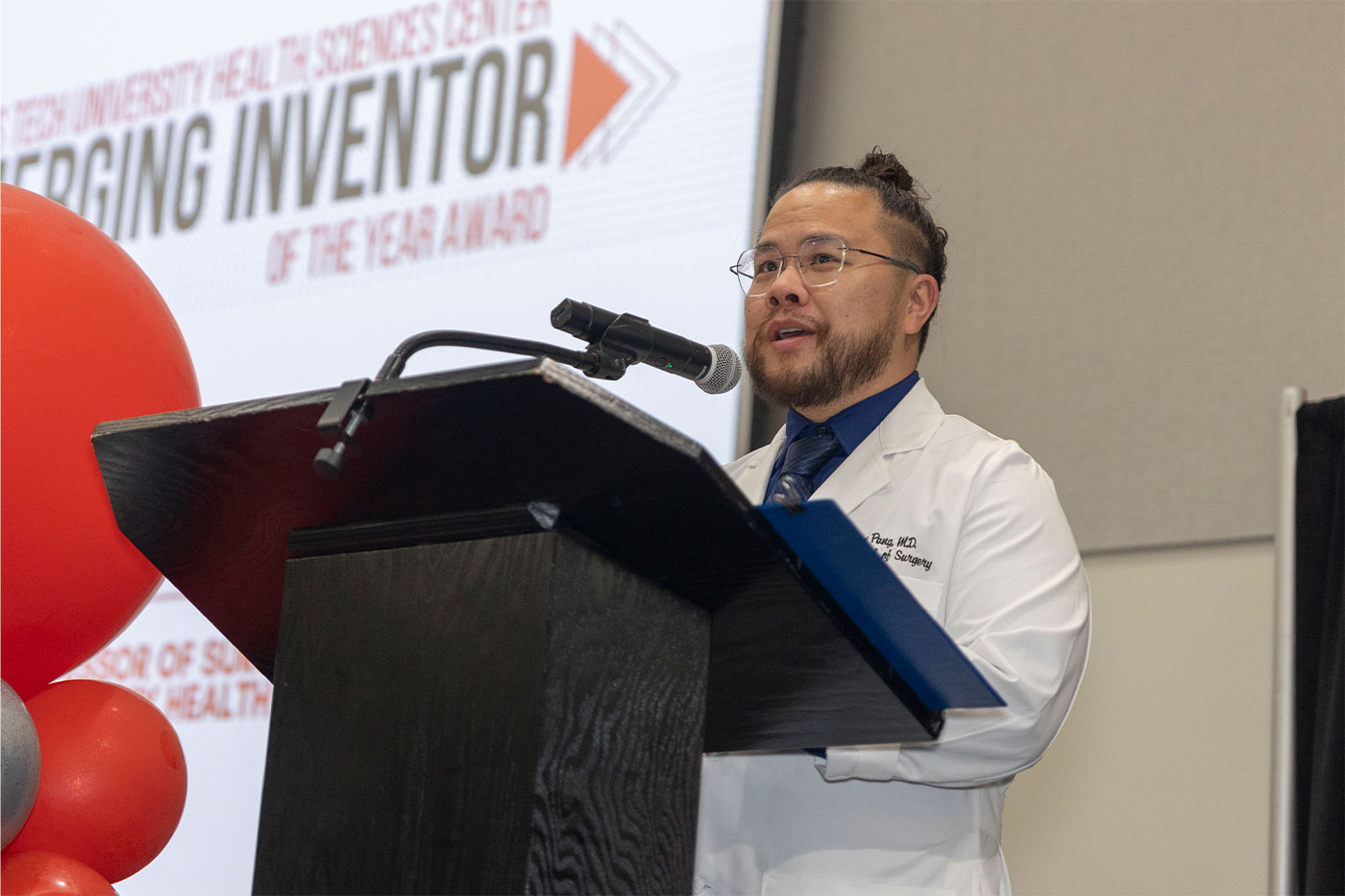The Office of Research Commercialization honored the 2025 Inventors of the Year and recognized groundbreaking research during the annual Inventor Celebration.
The Office of Research Commercialization at Texas Tech University honored inventors and their discoveries that are transforming research into real-world impact during the annual Inventor Celebration on Oct. 16.
The event brought together faculty inventors, university leaders and community partners to celebrate the power of innovation across disciplines. This year’s celebration followed a notable achievement as research commercialization supported 23 issued U.S. patents during the 2025 fiscal year, a testament to the creativity and entrepreneurial drive flourishing across the Texas Tech University System.
"With a record-breaking year of disclosure activity, 23 U.S.-issued patents and momentum growing across every campus, the Texas Tech System continues to advance the translation of research into real-world solutions,” said Jennifer Souter, senior managing director of research commercialization. “This celebration highlights the inventors who are shaping industries, creating companies and improving lives."
The ceremony honored 13 inventors with patent plaques, celebrated National Academy of Inventors (NAI) members and recognized winners in several prestigious categories, including the Emerging Inventors of the Year, Most Disruptive Technology, Deal of the Year and Startup of the Year.


The 2025 Emerging Inventor of the Year Awards celebrated two visionaries who embody the Texas Tech mission to translate research into meaningful solutions for society – Paul Egan at Texas Tech and Alan Pang at the Texas Tech University Health Sciences Center.
Egan is an assistant professor in the Department of Mechanical Engineering and director of the Medicine, Mechanics and Manufacturing Design (M3D) Design Lab in the Edward E. Whitacre Jr. College of Engineering. His lab develops 3D printing solutions for tissue engineering, personalized nutrition and next-generation medical devices, bridging creativity with care to empower new possibilities for patient well-being.
“I am grateful for the opportunity to contribute to the Texas Tech innovation ecosystem, which is truly commendable in supporting inventors making a positive impact through research and entrepreneurship,” Egan said.
Pang is an assistant professor of burn, wound, critical care and trauma surgery in the School of Medicine. As co-founder of AIKO Healthcare Solutions, a Texas Tech Innovation Hub startup in the 2024-2025 Accelerator Program, he is revolutionizing how clinicians predict hospital length of stay and patient outcomes through AI-driven models.
“I stand on the shoulders of those in the innovation and surgical community who came before me, whose support makes my successes possible,” Pang said. “This recognition is not a statement of worthiness for me, but a representation of all those in my corner who allowed me to create something worth recognizing.”

The Most Disruptive Technology Award was presented to Brenda Connor, professor of practice and senior technical managing director of the Critical Infrastructure Security Institute.
The Deal of the Year Award was presented to T2YourHealth, LLC, a comprehensive platform offering early metabolic health screening and personalized coaching. The platform empowers individuals to take proactive control of their health through accessible, data-driven insights that address one of today’s most pressing public health challenges: metabolic disease.
The Startup of the Year Award went to Moonlight Therapeutics, a biotechnology company developing microneedle patch treatments for food allergies, including peanuts. Based on technology invented at Texas Tech by Harvinder Gill and Akhilesh Shakya, the company’s innovation could revolutionize allergy treatment by delivering painless, non-invasive immunotherapy through a simple skin patch.
